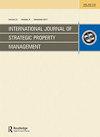HOW TO MAKE URBAN RENEWAL SUSTAINABLE? PATHWAY ANALYSIS BASED ON FUZZY-SET QUALITATIVE COMPARATIVE ANALYSIS (FSQCA)
IF 1.7
4区 管理学
Q3 MANAGEMENT
International Journal of Strategic Property Management
Pub Date : 2023-07-13
DOI:10.3846/ijspm.2023.19352
引用次数: 0
Abstract
Even though urban renewal has attracted much attention in recent years, relatively few studies focus on the sustainability of urban renewal projects, which is surprising given the associated economic benefits. To fill this gap, we review 31 typical cases of urban renewal in China that have existed for over 10 years and utilize fuzzy set qualitative comparative analysis (fsQCA) to identify causal configurations that lead to a high level of stakeholder satisfaction. Our findings show that: (1) there are four antecedent configurations that lead to the sustainability of urban renewal of urban renewal (these are: ~ preservation of history and culture * differentiation * project reformation * ~ incremental innovation; ~ preservation of history and culture * differentiation * commercial publicity * incremental innovation; preservation of history and culture * commercial publicity * ~ project reformation * incremental innovation; and preservation of history and culture * differentiation * ~ commercial publicity * project reformation * incremental innovation); (2) compared with other conditions, differentiation and incremental innovation play more important roles in the sustainability of urban renewal; and (3) not only the improvement of the environment but also the operation and management of projects should be considered carefully. This paper contributes to urban renewal literature and offers practical suggestions for sustainable urban development.如何使市区更新可持续?基于模糊集定性比较分析(fsqca)的路径分析
尽管近年来城市更新备受关注,但关注城市更新项目可持续性的研究相对较少,考虑到相关的经济效益,这一点令人惊讶。为了填补这一空白,我们回顾了中国存在超过10年的31个典型城市更新案例,并利用模糊集定性比较分析(fsQCA)来识别导致高水平利益相关者满意度的因果配置。研究结果表明:(1)城市更新的可持续性存在4个先行配置,即:历史文化保护*差异化*项目改革*增量创新;~历史文化保护*差异化*商业宣传*增量创新;历史文化保护*商业宣传* ~项目改造*增量创新;与历史文化保护*差异化*商业宣传*项目改造*增量创新);(2)与其他条件相比,差异化和渐进式创新对城市更新的可持续性作用更大;(3)不仅要考虑环境的改善,而且要认真考虑项目的运营和管理。本文对城市更新的相关文献有所贡献,并为城市可持续发展提供切实可行的建议。
本文章由计算机程序翻译,如有差异,请以英文原文为准。
求助全文
约1分钟内获得全文
求助全文
来源期刊
CiteScore
4.00
自引率
18.50%
发文量
23
审稿时长
15 weeks
期刊介绍:
International Journal of Strategic Property Management is a peer-reviewed, interdisciplinary journal which publishes original research papers. The journal provides a forum for discussion and debate relating to all areas of strategic property management. Topics include, but are not limited to, the following: asset management, facilities management, property policy, budgeting and financial controls, enhancing residential property value, marketing and leasing, risk management, real estate valuation and investment, innovations in residential management, housing finance, sustainability and housing development, applications, etc.

 求助内容:
求助内容: 应助结果提醒方式:
应助结果提醒方式:


